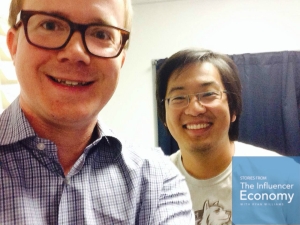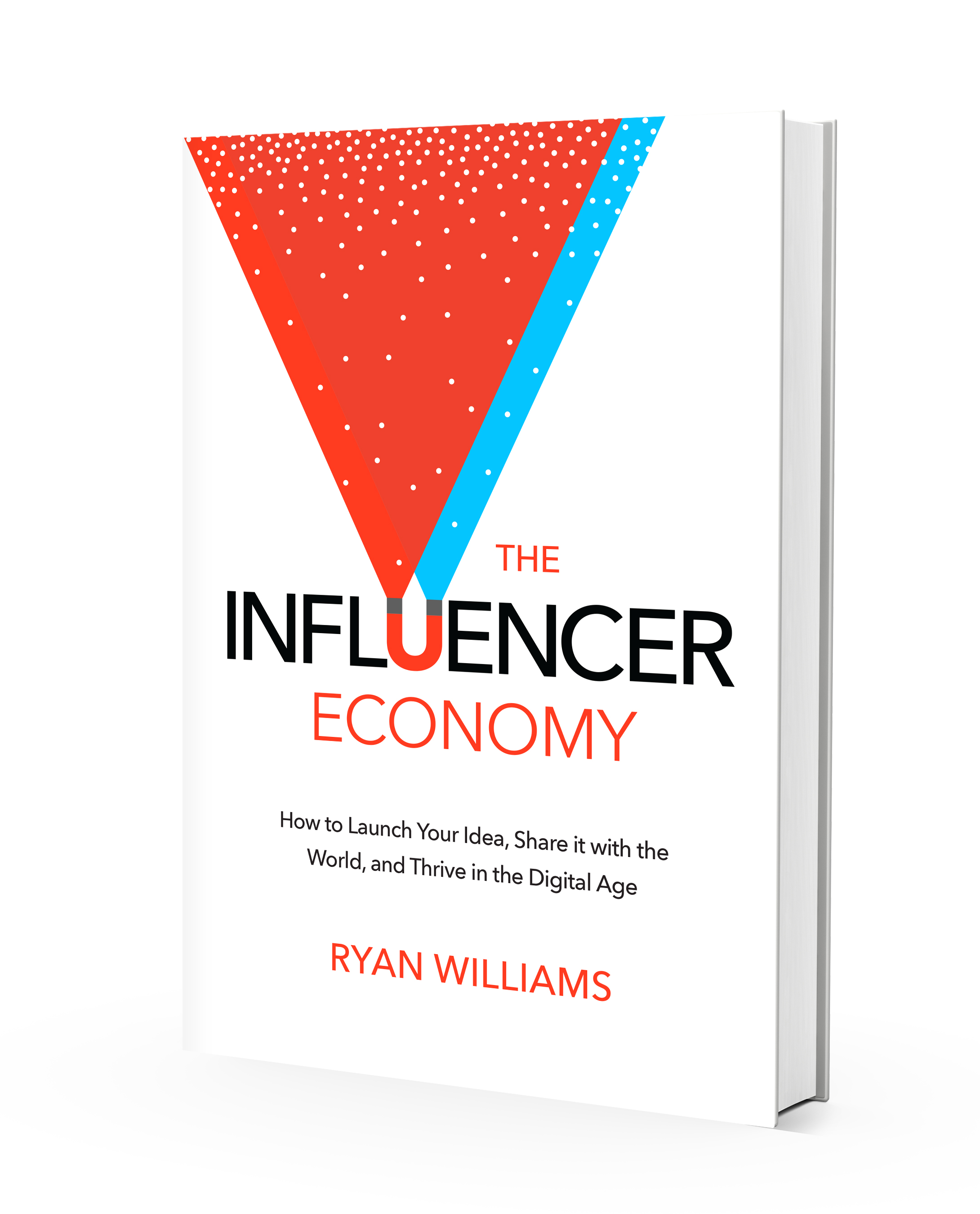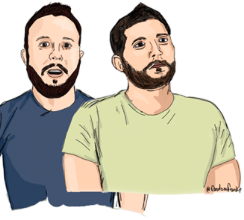
Freddie Wong and Ryan Williams @ RocketJump Studios
A YouTube video posted in 2006 begins abruptly with a college-aged, bespectacled Chinese American rising from a dirt bike in his living room. Wearing a black leather jacket and linked chains, he grabs a microphone and says, “What’s up, Internet? My name is Freddie.” He tells us he’s been “rocking faces” all day and is ready to rock ours. Freddie proceeds to play the video game Guitar Hero II on expert level, jamming out on his plastic guitar to the Rush song “YYZ.” This was Freddie Wong’s debut video on his newly launched FreddieW YouTube channel. To date, videos on this channel—including the groundbreaking Video Game High School web series—have earned over one billion views worldwide and enabled Freddie to totally rewrite the rules on crowdfunding in the age of the Internet.
Back when Freddie first rocked out in his living room, YouTube was mainly known as a source of pirated videos, such as Andy Samberg’s “Lazy Sunday” Saturday Night Live digital short. NBCUniversal successfully pressured YouTube to remove the video, and Viacom had even filed suit against the company over The Daily Show segments that fans had ripped straight from TV for upload. While these major corporations were fighting to remove content from YouTube, Freddie was posting his own new videos as quickly as he could. He also continued to rock. As a professional gamer, he leveled up and actually won the 2007 World Series of Video Games Guitar Hero II challenge. The prize was worth $2,635 and came with bragging rights that only helped to grow his online audience.
Pretending to play Rush songs was cool, but Freddie always saw himself as a filmmaker. In 2008, he graduated from the USC School of Cinematic Arts and, unlike most in his class, chose to continue building a community of online followers before launching any major film projects. To achieve this, he uploaded a video on his YouTube channel each week. While he had no way of knowing it at the time, such consistency is extremely important for building community, and Freddie created a habit for his audience by providing them with new work to view on a regular basis. Even when he wasn’t getting paid for his videos with advertisements, he treated his schedule professionally and delivered content consistently.
In 2011, Freddie increased his production capabilities by cofounding RocketJump Studios. Together with his partners, Freddie began to create original content in their own facility in Burbank, California. In an end-to-end model, they distributed that content directly to their audience and monetized it with ads. Freddie decided that the moment was right to launch his massive project, Video Game High School (VGHS), a web series featuring a bit of wish fulfillment. The action takes place in the near future when professional gaming is the most popular sport in the world. The main character, BrianD, is accepted into an elite high school that trains kids to become professional gamers. Despite the pro gaming backdrop and Michael Bay-level of special effects, the series is essentially a modern-day coming of age story.
Freddie intended it to be aspirational and visually striking. The only catch was that he needed his audience to help him fund the project. Around the time that the FreddieW channel gained a large following, crowdfunding emerged as a powerful resource for nontraditional film financing. Again, Freddie was an early adopter to a new technology medium. Crowdfunding at its most basic is the practice of funding a project or venture by raising small amounts of money from a large number of people. Websites such as Kickstarter and Indiegogo were allowing creators to put their ideas to the test. Would their networks of supporters actually come through with money? It was a gut check for many people posting projects, especially on Kickstarter, where the all-or-nothing policy meant you couldn’t keep a single dollar if the entire fundraising goal wasn’t met.
Freddie and his team hoped to raise $75,000 to finance the first season of Video Game High School. Once their campaign commenced, it took less than 24 hours for them to reach their goal, a record speed for the platform. By the end of their effort, they had raised $273,725 from 5,661 backers—almost $200,000 more than their announced budget. “It’s been a crazy ride and we owe it all to you,” Freddie told his community via Kickstarter. “We can’t thank our fans enough. You are redefining how online content is made.”1
By being an early adopter, Freddie helped shape and define the adoption of crowdfunding for more mainstream projects. RocketJump Studios scored significant media attention after the successful financing of Video Game High School and further established Internet crowdfunding as a legit solution for Spike Lee, Zach Braff, the Veronica Mars movie creative team, and many other filmmakers and entrepreneurs. Freddie’s transparency about the line items in the VGHS budget was one way he earned the trust of his backers. Fans who paid into the project understood where their money went.
We talk at length about how he built his audience and fans online, how he raised crowdfunding dollars, and his 7 million YouTube subscribers.
Listen on Tunes by clicking here









Leave A Comment